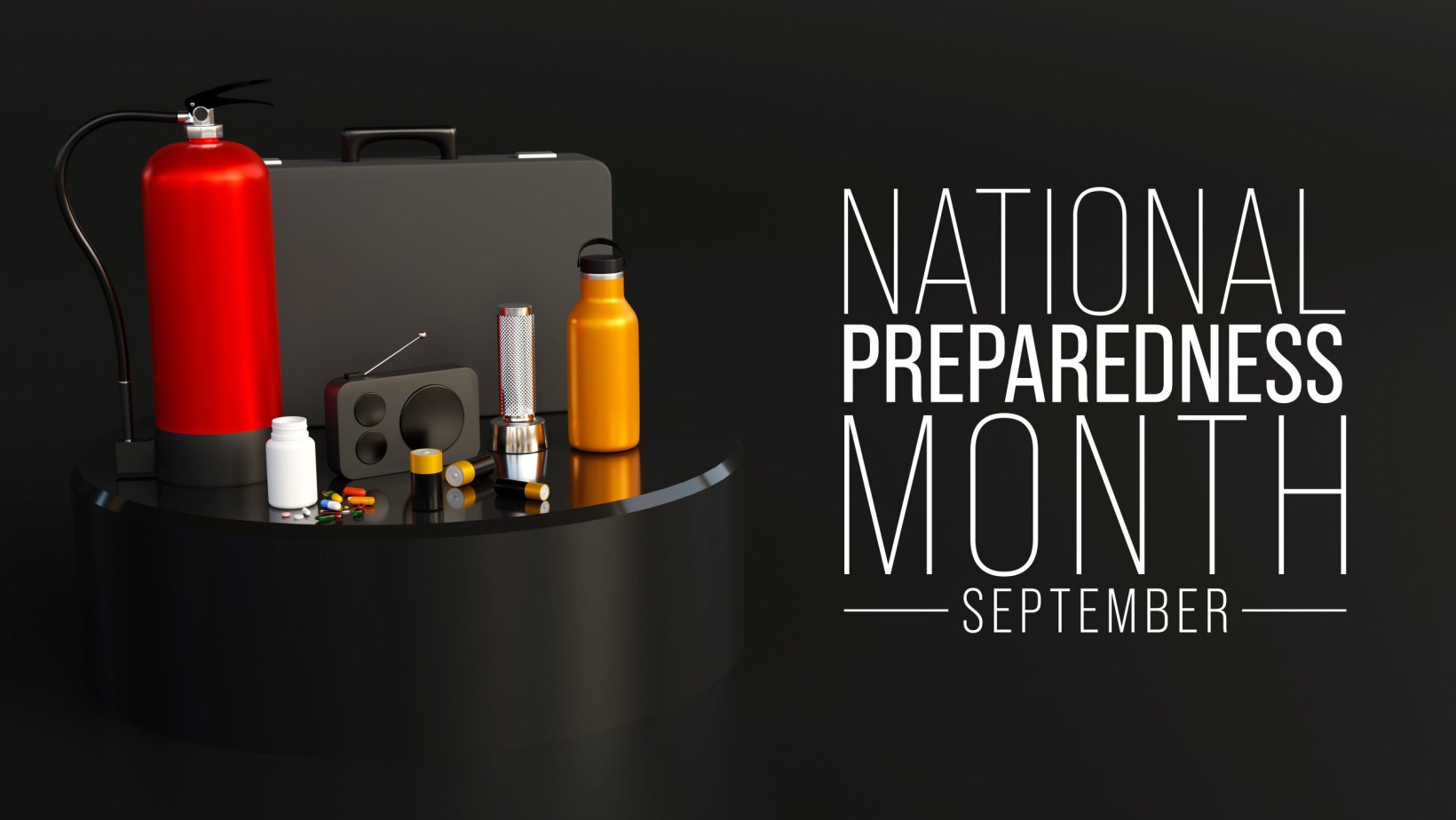September is Preparedness Month: Be Prepared for Disasters and Emergencies
Preparedness Month, observed every September, serves as a timely reminder to evaluate our disaster readiness and take necessary steps to safeguard ourselves and our loved ones during emergencies and disasters. We have 6 practical tips to help you become better equipped to face emergencies head-on.
Understanding the Importance of Preparedness
Disasters can strike without warning, leaving communities in turmoil. Preparedness is more than just stockpiling supplies; it involves a proactive approach to minimize the impact of disasters. Understanding potential hazards specific to your region, such as hurricanes, earthquakes, wildfires, or floods, is crucial in creating an effective preparedness plan.
Create a Family Emergency Plan
Developing a family emergency plan is crucial to ensure everyone knows what to do in an emergency. Discuss evacuation routes, designated meeting points, and communication methods with family members. Assign roles and responsibilities to each family member to ensure a coordinated response during crises.
Build an Emergency Kit
An emergency kit is a collection of essential items that sustain you and your family during the first 72 hours of a disaster when help may be limited. It should include non-perishable food, water, first aid supplies, a flashlight, batteries, a battery-powered radio, important documents, and personal hygiene items. Regularly check and update your emergency kit to ensure all items are in good condition and within their expiration dates.
Stay Informed
Staying informed about potential threats and emergencies is essential for making informed decisions. Use local news, weather apps, and official emergency alerts to receive real-time updates. Sign up for community-based alert systems that provide instant notifications about imminent dangers.
Secure Your Home
Take preventive measures to safeguard your home against potential disasters. Install smoke detectors, carbon monoxide alarms, and fire extinguishers. Consider reinforcing doors and windows, securing heavy furniture, and strapping down water heaters to minimize damage during earthquakes or hurricanes.
Build a Community Network
A strong community network can make a significant difference during disasters. Get involved in local emergency preparedness groups or neighborhood watch programs to collaborate with others, share resources, and support one another in disasters and emergencies.





